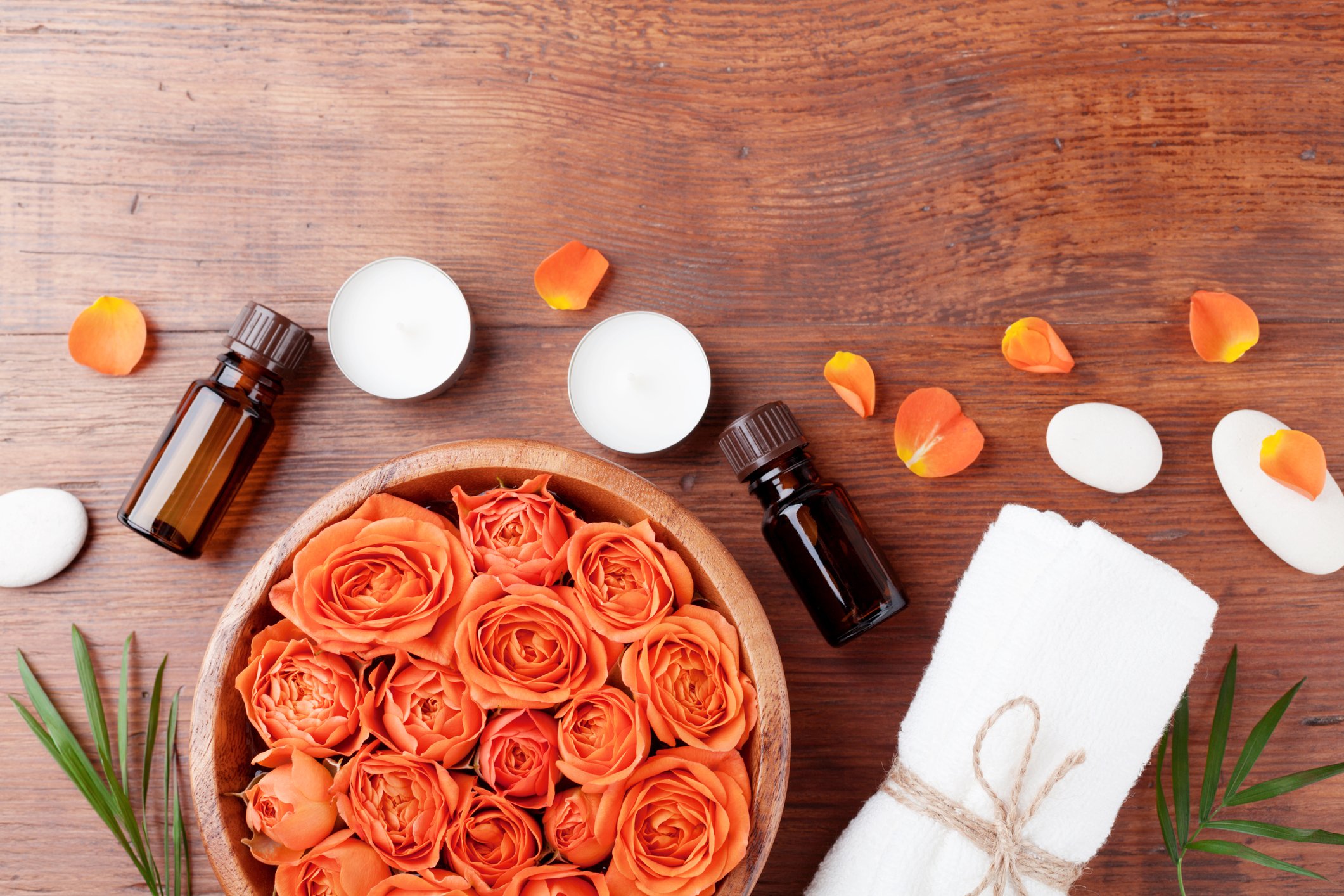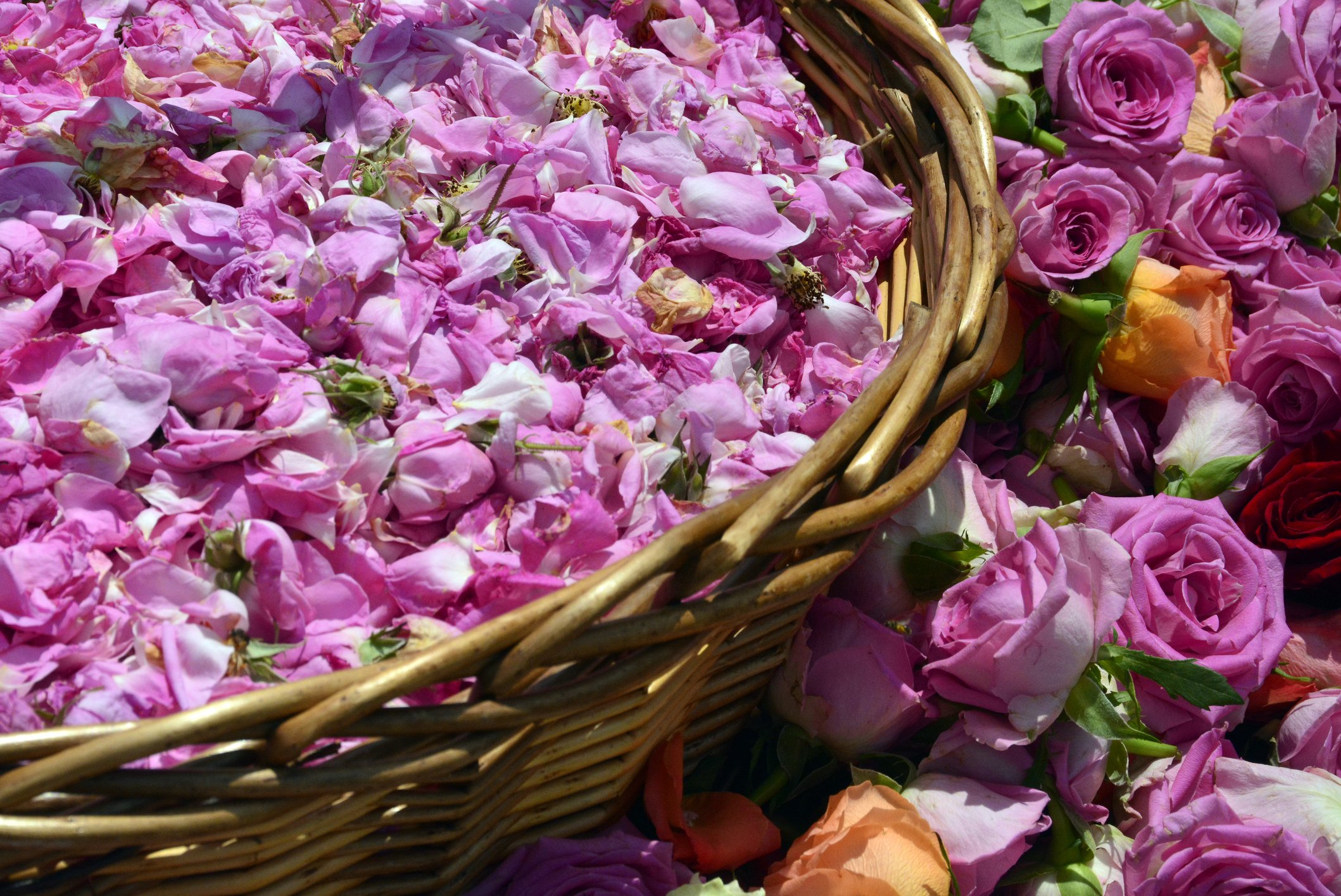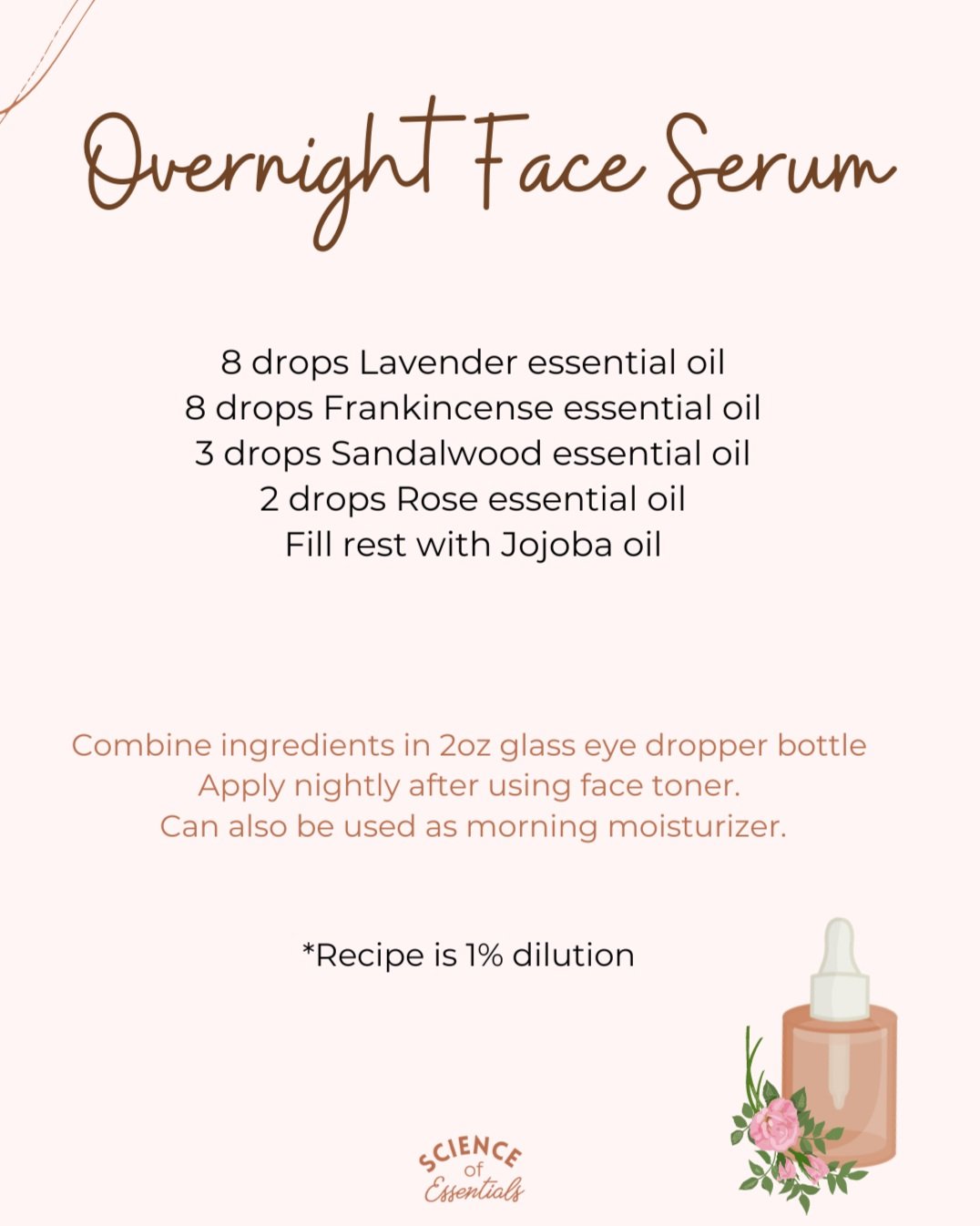8 Incredible Benefits of Rose Essential Oil
The aroma of a rose, the alluring fragrance entertained by lovers and poets for centuries. The scent a rose can ignite memories of childhood gardens, love and intimacy. When asked what scent resembles love, most are quick to list the smell of roses. Roses are more than just a sweet, rich, sensual scent. Those deeply aromatic petals host many health benefits for the body.
“What’s in a name? That which we call a rose, by any other name would smell as sweet.” -Shakespeare
Did you know there are over 300 species of roses? Rose essential oil is most commonly derived from the rose plant Rosa damascena. It can also come from the Rosa centifolia plant (cabbage rose). It is estimated that it takes 22 pounds of rose petals to make one 5ml bottle of rose essential oil. Due to the low content of oil in the rose petals and the labor intense process, rose oil is retailed at a very high price. The hydrosol portion of the distillate is known as rosewater. Rosa damascena is also known as Bulgarian rose, Turkish rose, summer damask rose, rose otto and rose attar. Rose absolute is produced by solvent extraction from the fresh petals.
Rose was called “the queen of flowers” by the Greek poet Sappho. Rose is derived from the Greek word rodon, meaning “red.” Compared to other essential oils, there is little history of the use of rose essential oil in ancient herbal practice. Fossil records suggest the first appearance of roses was 35 million years ago. The plant has been used for centuries to enhance romance due to its sensual aroma. The French or Moroccan rose had a reputation in history for being aphrodisiac. (1) The Romans scattered rose petals during banquets and threw them in the paths of their victors, and wreaths of roses were found at weddings and funerals. Fresh petals were placed in wine and baths. (2)
“The optimist sees the rose and not its thorns; the pessimist stares at the thorns, oblivious to the rose.” -Kahlil Gibran
Aroma and characteristics
The aroma of rose essential oil is rich, sweet-floral and earthy. It is pale yellow or olive yellow in color. Unadulterated rose essential oil is very viscous and solidifies when it cools. It can be liquefied by holding the bottle in the warmth of the hand for a few minutes before use.
Principal Constituents
Rose essential oil contains a number of compounds however its core components are citronellal (16-44%), geraniol (15-25%) and nerol (4-9%) with many other trace constituents (3).
Uses
Rose essential oil hosts many therapeutic benefits: antidepressant, antiphlogistic, antiseptic, anti-inflammatory, astringent, antibacterial, antiviral, aphrodisiac, sedative, nervine, uplifting and comforting aroma.
8 Incredible Benefits of Rose Essential Oil
Supports Menstruating and Menopausal Symptoms
Rose essential oil may support women’s health by assisting with menopausal and PMS symptoms such as menstrual cramping and moodiness. Several studies have shown that rose essential can be beneficial when inhaled or applied topically for menstrual discomfort. In one study, it was found that massage with rose essential oil reduces the severity of primary dysmenorrhea, in comparison with massage therapy alone. (4)
A randomized control trial in 2016 evaluated the effects of rose essential on primary dysmenorrhea in combination of the medication diclofenac sodium. The results showed that those who inhaled vaporized rose oil combined with medication had significantly lower pain than those who used the medication alone. (5)
May Assist During Childbirth
Rose essential oil may ease stress and anxiety during childbirth. It is also thought to help tone the uterus. (6) One study with 120 women in the first stage of labor found that anxiety scores were significantly reduced for those study participants who received a 10-minute inhalation and foot bath using rose essential oil. (7) In another study of 8,058 women in labor, rose essential oil was noted as the most effective oil for calming anxiety. (8)
Rose essential oil may also be supportive following casarean section. In a double-blind randomized control trial in 2020, patients in the intervention groups inhaled a few drops of either lavender or rose essential oil on a cotton ball following C-sections. It was found that aromatherapy could reduce the severity of anxiety and pain, with rose essential oil showing a greater effect than lavender. (9)
Uplifts Mood
Rose essential oil is known for having the power to uplift mood and nourish the heart. It is referenced by many cultures as being the healer of the mind, body and spirit. Some say it can relieve heartache and seasons of sadness.
“The compassion of the flower is revealed through its ability to heal emotional wounds. When rejection or loss has injured our capacity for self-love and nurturing, rose oil brings a sweet, gentle comfort, binding the heartstrings of the mind. Bringing warmth to a soul grown cold through abuse or hurt, rose oil can touch the deepest despair, restoring the trust that makes it possible to love again.” -Gabriel Mojay (10)
The scent of rose is mildly sedative and can be helpful to uplift moods related to emotional trauma or shock as well as during seasons of grief or sadness. In a small pilot study of 28 postpartum women, it was found that a 2% diluted blend of lavendula angustifolia and rose otto used twice a week for four weeks, significantly decreased postnatal depression scores. (11)
Decreases Stress and Anxiety
In addition to uplifting moods, several studies have shown that rose essential oil may help reduce stress and anxiety. One study showed the relaxing effect after rose essential oil was applied topically to the skin. After application, blood pressure, heart rate, breathing rate, cortisol levels all decreased. (12)
A 2022 randomized controlled trial evaluated the effects of inhalation of Damask Rose on anxiety and sleep quality of 80 operating room personnel. It was found that rose essential oil can be effective in reducing anxiety and improving sleep quality. (13)
May Increase Sexual Desire and Attraction
Rose essential oil has been used for centuries to increase attraction and promote intimacy. It is commonly referred to as an aphrodiasiac oil. Due to its ability to reduce stress and anxiety, it may help increase sexual desire. When a scent passes through the olfactory system, this influences the limbic system. At the center of the limbic system is the hypothalamus which drives sexual desire. We can use essential oils to promote feelings of happiness, self-confidence, feminism, and love.
A 2015 double-blind, randomized, placebo-controlled trial evaluated the effects of rose essential oil on 60 male patients with major depressive disorder who were treated with selective serotonin-reuptake inhibitors (SSRIs) which has an impact on sexual dysfunction. Results showed a significant improvement in sexual dysfunction in addition to reduced symptoms of depression for those who used rose oil compared to the control group. (14) Another study with 50 women also showed improved sexual function however, results were less robust than the male study. (15)
Scent may also increase attraction for others. One study showed that study participants who smelled rose oil rated faces as more attractive. This study helps show that scent can influence our attraction and behavior with others. (16)
Supports Skin Health
Rose essential oil is rich in antioxidant properties that may help fight wrinkles and fine lines. Considered the “oil of youth” as it can improve skin hydration and reduce dry skin, redness and itching. It is also great for sensitive and mature skin. Research also suggests it may be supportive in decreasing acne and blemishes. (17)
Blends Well with Other Oils and Makes a Great Perfume
Rose essential oil is a low middle to base aroma note. Its deeply rich, sweet-floral scent blends well with almost all other essential oils. Rose essential oil can also be incredible diluted alone and used as a natural perfume.
Boost Hair Health and Moisturizes Dry Hair
Many natural shampoos and hair care products contain rose essential oil as it can be beneficial for supporting healthy hair and scalp. It may help soothe a dry, flaking scalp.
Safety: Rosa damascena essential oil is non-toxic and non-irritating. It is not contraindicated in pregnancy. (18) Rosa damascena may contain a small amount of the constituent methyleugenol, therefore, it is recommended to dilute appropriately when applying to the skin. It is not recommended to ingest rose essential oil unless under the guidance of a Certified Aromatherapist.
Risk for adulteration: It takes a large amount of rose petals to distill a small amount of essential oil. Damask rose essential oil may be adulterated with ethanol, 2-phenyethanol, geranium oil or rhodinol and other rose alcohols may be added and passed off as rose oil.
Blends well with: Most oils but especially chamomile, bergamot, geranium, clary sage, lavender, sandalwood, neroli, black pepper, orange, ginger.
Applications and Methods of Use:
Use in soaps and lotions to soothe dry skin.
Wear as a perfume to create a sensual mood.
Apply in a roller to uplift mood and overcome nervousness and emotional stress.
My favorite roller blend with rose essential oil to combat nervous tension and anxiety is: 8 drops sweet orange, 4 drops black spruce, 2 drops rose, 2 drops vetiver in 10ml roller with carrier oil. (This blend would also work great in an aromatherapy inhaler)
Make an herbal tea bath, add to Epsom salts or add rose hydrosol directly to bath.
Make a massage oil and apply gently to abdomen to ease menstrual discomfort.
Diffuse to promote relaxation after a stressful day.
Make a rose water toner to promote healthy skin.
Add a few drops in calming linen spray with lavender essential oil.
Add a few drops to shampoo to promote healthy moisturized hair.
Make an overnight face serum to help calm acne, soothe, moisturize and promote healthy skin.
Use in foot soak by adding 2 drops to 1 tablespoon of carrier oil and adding to a warm water foot bath.
Fun Fact:
Have you heard the expression “Stop and Smell the Roses?”
The expression stop and smell the roses came into use in the 1960s and is a rephrasing of a sentiment found in an autobiography written by the golfer Walter Hagen:
“Don't hurry. Don't worry.
And be sure to smell the flowers along the way.”
There is no better sense than the sense of smell to help bring us to the present moment.
Hope you stop and smell the roses today!
Want to learn more about using essential oils to set the mood for love and intimacy? Check out this blog post here.
Disclaimer: This blog is for general informational purposes only and does not constitute the practice of medicine, nursing or other professional health care services, including the giving of medical advice. The use of information on this blog or materials linked from this blog is at the user's own risk. The content of this blog is not intended to be a substitute for professional medical advice, diagnosis, or treatment. Users should not disregard, or delay in obtaining, medical advice for any medical condition they may have, and should seek the assistance of their health care professionals for any such conditions.
References:
Brooks, Lisa. (2017). The Herbal Apothecary. Louis Weber Publications International.
Lawless, Julia. (1998). Aromatherapy and the Mind. Hammersmith, London: Thorsons.
Tisserand, Robert (2014) Essential Oil Safety, 2nd Edition. Churchill Livingstone Elsevier
Sadeghi Aval Shahr H, Saadat M, Kheirkhah M, Saadat E. The effect of self-aromatherapy massage of the abdomen on the primary dysmenorrhoea. J Obstet Gynaecol. 2015 May;35(4):382-5.
Uysal M, Doğru HY, Sapmaz E, Tas U, Çakmak B, Ozsoy AZ, Sahin F, Ayan S, Esen M. Investigating the effect of rose essential oil in patients with primary dysmenorrhea. Complement Ther Clin Pract. 2016 Aug;24:45-9.
Conrad, Pam (2019). Women’s Health Aromatherapy. Singing Dragon, London.
Kheirkhah M, Vali Pour NS, Nisani L, Haghani H. Comparing the effects of aromatherapy with rose oils and warm foot bath on anxiety in the first stage of labor in nulliparous women. Iran Red Crescent Med J. 2014 Aug 17;16(9):e14455.
Burns EE, Blamey C, Ersser SJ, Barnetson L, Lloyd AJ. An investigation into the use of aromatherapy in intrapartum midwifery practice. J Altern Complement Med. 2000 Apr;6(2):141-7.
Abbasijahromi A, Hojati H, Nikooei S, Jahromi HK, Dowlatkhah HR, Zarean V, Farzaneh M, Kalavani A. Compare the effect of aromatherapy using lavender and Damask rose essential oils on the level of anxiety and severity of pain following C-section: A double-blinded randomized clinical trial. J Complement Integr Med. 2020 Sep 23;17(3).
Mojay, Gabriel. Aromatherapy for Healing the Spirit. Rochester, Vermont: Healing Arts Press.
Conrad P, Adams C. The effects of clinical aromatherapy for anxiety and depression in the high risk postpartum woman - a pilot study. Complement Ther Clin Pract. 2012 Aug;18(3):164-8.
Hongratanaworakit T. Relaxing effect of rose oil on humans. Nat Prod Commun. 2009 Feb;4(2):291-6.
Mahdood B, Imani B, Khazaei S. Effects of Inhalation Aromatherapy With Rosa damascena (Damask Rose) on the State Anxiety and Sleep Quality of Operating Room Personnel During the COVID-19 Pandemic: A Randomized Controlled Trial. J Perianesth Nurs. 2022 Aug;37(4):493-500.
Farnia V, Shirzadifar M, Shakeri J, Rezaei M, Bajoghli H, Holsboer-Trachsler E, Brand S. Rosa damascena oil improves SSRI-induced sexual dysfunction in male patients suffering from major depressive disorders: results from a double-blind, randomized, and placebo-controlled clinical trial. Neuropsychiatr Dis Treat. 2015 Mar 9;11:625-35.
Farnia V, Hojatitabar S, Shakeri J, Rezaei M, Yazdchi K, Bajoghli H, Holsboer-Trachsler E, Brand S. Adjuvant Rosa Damascena has a Small Effect on SSRI-induced Sexual Dysfunction in Female Patients Suffering from MDD. Pharmacopsychiatry. 2015 Jul;48(4-5):156-63.
Seubert J, Gregory KM, Chamberland J, Dessirier JM, Lundström JN. Odor valence linearly modulates attractiveness, but not age assessment, of invariant facial features in a memory-based rating task. PLoS One. 2014 May 29;9(5):e98347.
Zu Y, Yu H, Liang L, Fu Y, Efferth T, Liu X, Wu N. Activities of ten essential oils towards Propionibacterium acnes and PC-3, A-549 and MCF-7 cancer cells. Molecules. 2010 Apr 30;15(5):3200-10.
Tisserand, Robert (2014) Essential Oil Safety, 2nd Edition. Churchill Livingstone Elsevier





